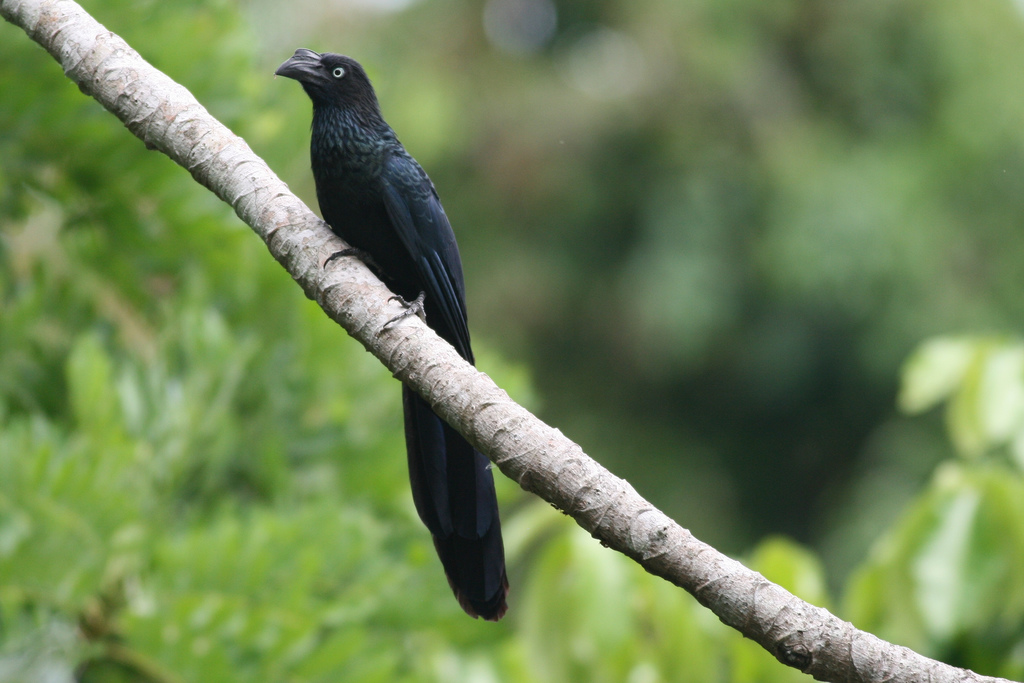
Crotophaga major (Greater Ani)/Arthur Chapman (CC BY 2.0)
One Darwinian claim is that some species of birds lay their eggs in other birds’ nests because they gain a fitness advantage by doing so. They spread their selfish genes with less effort. Never mind the real possibility is that these species have simply lost track of how to make a nest and are coping successfully with that fact by laying eggs in another species’ nest. Anyway, given that these species don’t (can’t?) make nests, how would we test the proposition that they are better off not doing so?
One Panama cuckoo, the greater ani, makes nests, usually in a colony of male-female pairs. But some females who have lost their eggs and nests to predators sneak to other nests to lay eggs. What happens then?
Mothers that parasitize other nests in this way seem to lay more eggs a year, on average, Riehl says. “It’s actually kind of hard to be a parasite,” she says. But the average number of chicks that survived to flutter out of the nest on their own frantic wing power was about the same for all females, Riehl and Princeton colleague Meghan Strong report online February 27 in Nature. The mothers that always cooperated averaged about one fledgling a year, and so did the females that laid stealth eggs…
The cheaters tend to repeat their deception if disaster strikes them again. Finding individual birds with a tendency to cheat could be “step one,” Riehl says, to testing for some heritable genetic basis for sneaking eggs. Susan Milius, “This parasitic cuckoo bird shows cheaters don’t always get ahead” at Science News
So the strategy is not outstandingly successful and the researchers are now looking for an explanation other than a selective advantage. That’s wise on their part. This sounds like another strategy where the bird merely adapts; sometimes it works and sometimes it doesn’t. No big Darwin theory is needed.
But maybe findings don’t really matter much yet, no matter how frequent the finding or how strong the signal. We will still hear the Darwinian myths in schools and traditional media. If you want more Darwinian myths, we can talk about peacocks, for example, or why stressed mares miscarry (going full Darwin).
See also: Sexual trappings (dimorphism) may increase the likelihood of extinction, not survival (peacocks)
and
Why stressed mares miscarry
Follow UD News at Twitter!